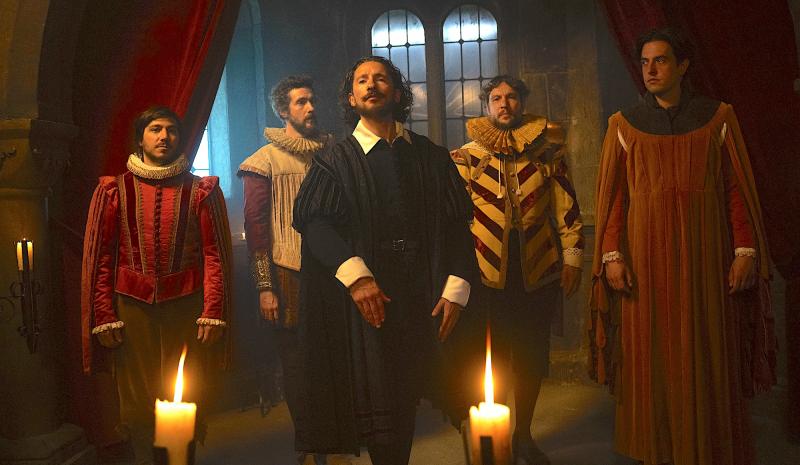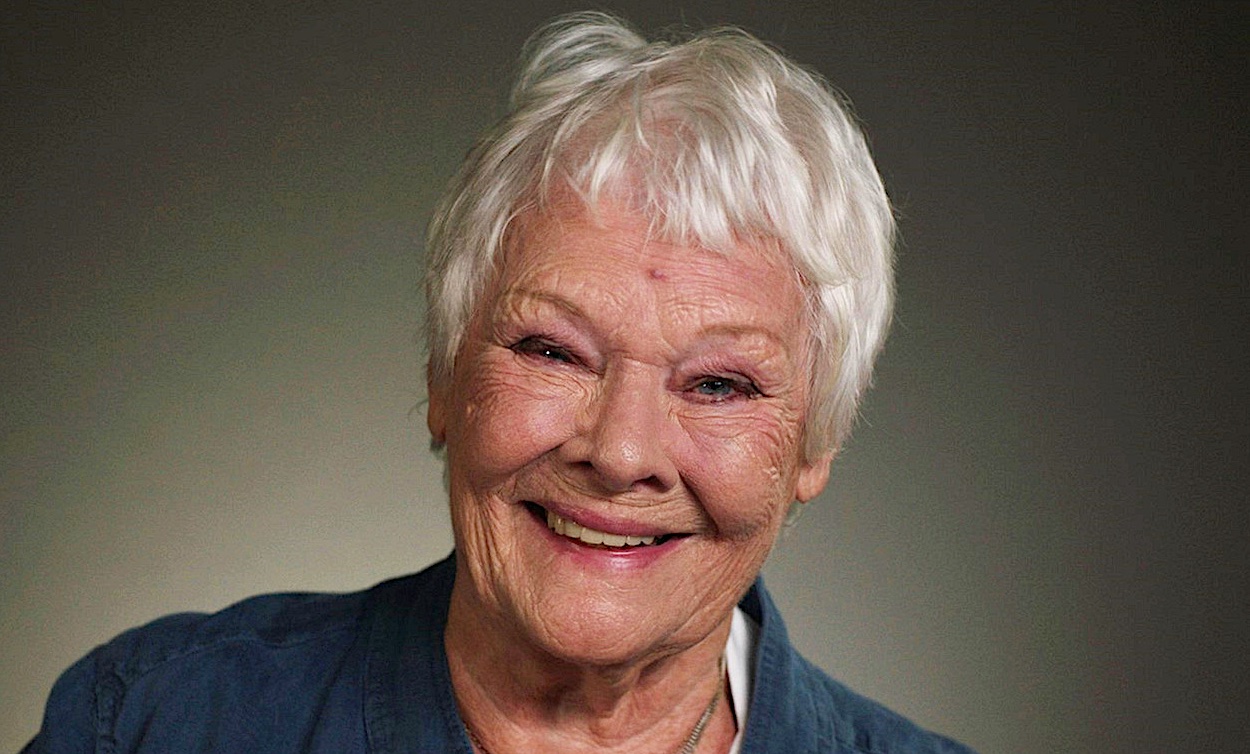Shakespeare: Rise of a Genius, BBC Two review - the Bard's soul bared in hybrid drama-documentary | reviews, news & interviews
Shakespeare: Rise of a Genius, BBC Two review - the Bard's soul bared in hybrid drama-documentary
Shakespeare: Rise of a Genius, BBC Two review - the Bard's soul bared in hybrid drama-documentary
Speculation and facts woven into a compelling portrait of a singular man

Four centuries on from the publication of the First Folio, is there anything new to be said about William Shakespeare?
Well, the fact that there is nothing old to be said about him (very little is known about the life of the glover’s son from Stratford) means that there’s always something new, as the evidence to gainsay any claim is minimal. Tedious conspiracy theories aside, it’s the kind of paradox the man himself might have appreciated.
That’s the jumping off point for 72 Films’ lavish production for BBC Arts, a three-hour series that sits somewhere between the "clips and talking heads" format (Friday night, Channel Five, Jimmy Carr) and the drama-documentary genre. Combining the two, and ensuring that both the heads that talk and the dramatisation production values are top quality, ensures an award-winning trajectory for the show. The dirt and the grime of plague-ridden London has never been rendered in such glossy cinematography, teeming with authentically costumed hoi polloi, and the CVs of the interviewees can barely be bettered.
The central conceit of Julian Jones’s proposition is that we can fill in the gaps in Shakespeare’s life story by extrapolating from what was on his mind as revealed in his contemporaneous works. Some such speculations have the ring of plausibility about them: Titus Andronicus written as a Tarantino-esque blood fest to bring in the plebs when he needed money shortly after his arrival in the capital; Julius Caesar written as a warning against the unintended consequences attendant on usurping a leader when the succession is uncertain. Others are shoehorned in with the air of an enthusiastic undergraduate dissertation running out of steam.
 The device works in setting up the vignettes of Shakespeare’s life, the best of which portray the chaos of London in the late 16th century. The bright young provincial, brimming equally with ambition and naivety, walks the streets of Southwark as brawls, sex and squalor feed his hungry eye. Daniel Boyarsky lends Shakespeare a serene other-worldliness, helped by the scenes having no dialogue (handy when it comes to making overseas sales), but there’s a tad too much staring off into the middle distance, a wistful expression in dreamy eyes, for my liking.
The device works in setting up the vignettes of Shakespeare’s life, the best of which portray the chaos of London in the late 16th century. The bright young provincial, brimming equally with ambition and naivety, walks the streets of Southwark as brawls, sex and squalor feed his hungry eye. Daniel Boyarsky lends Shakespeare a serene other-worldliness, helped by the scenes having no dialogue (handy when it comes to making overseas sales), but there’s a tad too much staring off into the middle distance, a wistful expression in dreamy eyes, for my liking.
This one-note performance especially grates in the scenes with his wife and family, largely abandoned if well looked after financially in the rural Midlands, while the head of the household hobnobs around town with Kit Marlowe and the Monarch (pictured above, Petra Lippai-Horváth as Elizabeth I with her court). One longs for the grist of David Mitchell’s earthy cynicism in Upstart Crow, Ben Elton’s comedy series that shares some elements of this production’s underpinning premise.
Nevertheless, the playwright nervously flicking aside the curtain to spy his Queen’s reaction to his latest play does underline the dangerous waters through which he steered in order to stay true to his fundamentally transgressive originality, while retaining the patronage of those who protected him against powerful, censorious Puritans). And it’s never less than thrilling to see the groundlings, a penny in the box for entry, roaring one moment and tearful the next as they immerse themselves in the power of his storytelling. They might not have had much bread, but they had a helluva circus.
 If the dramatisations do the heavy lifting of portraying the spectacle that packed ‘em in and made William Shakespeare a wealthy man and an early example of a social climber, the interviews uncover the peerless psychological insights that have kept audiences transfixed for 400 years or more.
If the dramatisations do the heavy lifting of portraying the spectacle that packed ‘em in and made William Shakespeare a wealthy man and an early example of a social climber, the interviews uncover the peerless psychological insights that have kept audiences transfixed for 400 years or more.
Academics, writers and actors give pithy comments on the plays, providing context and analysis and, disappointingly infrequently, actual quotations. The best is Dame Judi Dench (pictured above) whose starstruck fangirling is undiminished as she stands on the brink of her 90th year. The writers and historians give us more data, but the Dame gives us the emotion. She looks fantastic too in a grainy clip from 1968, playing Titania for Sir Peter Hall. Half a century younger, Jessie Buckley is all praise too, demonstrating the continuing fascination for the works amongst actors and well beyond.
The old academic in me wants to write “cite your sources!” in red pen on every other page of the shooting script, but it’s not that kind of programme. The vibe is upmarket, intellectually engaging and popular, but it never talks down to its audience who will be left wanting more – I’ll certainly be scouring the streaming services to find Adrian Lester’s Othello very soon.
As for the man himself, forever frozen in time gazing enigmatically out of that one portrait from beneath that high forehead, I suspect he’d confess to being pleased with that summary – and then, the head as hard in business as it was fecund in writing, he’d ask about his percentages on the rights sales.

Add comment